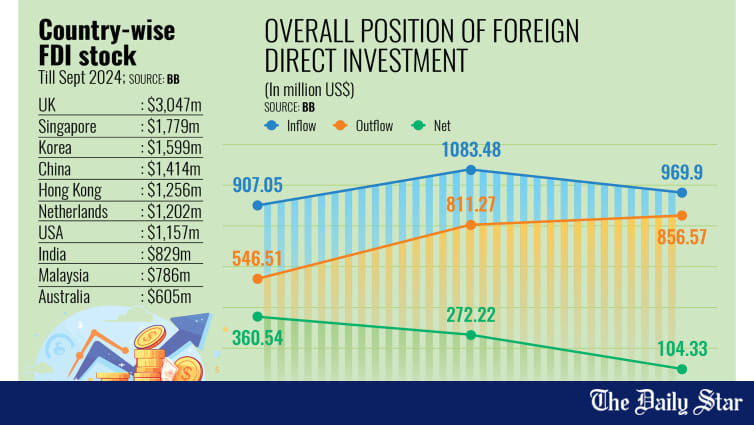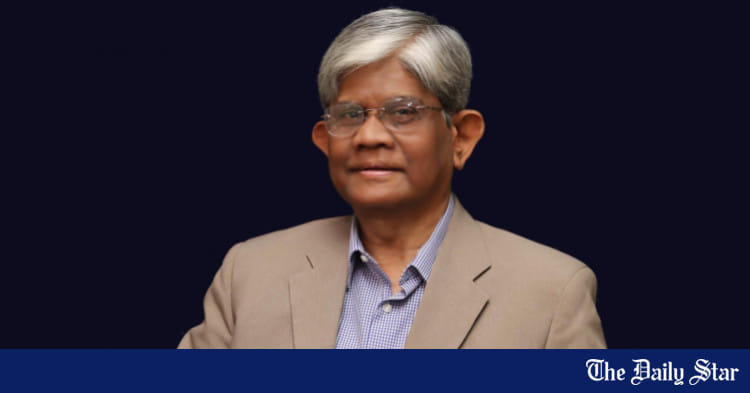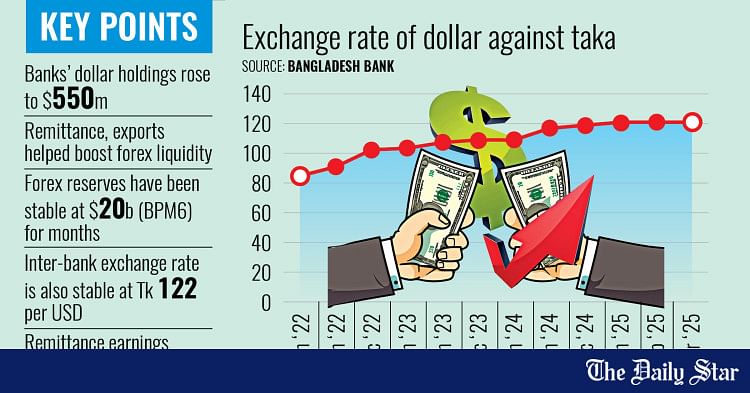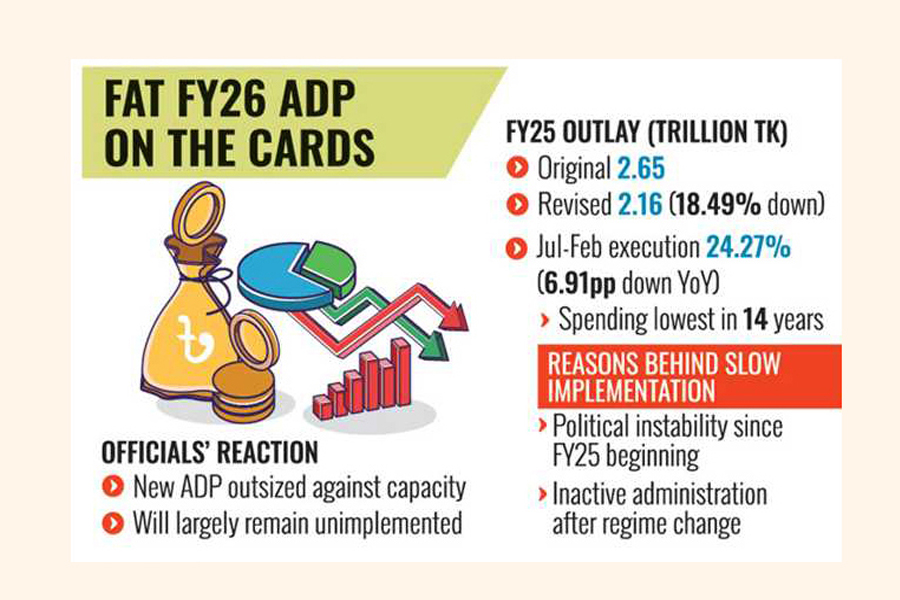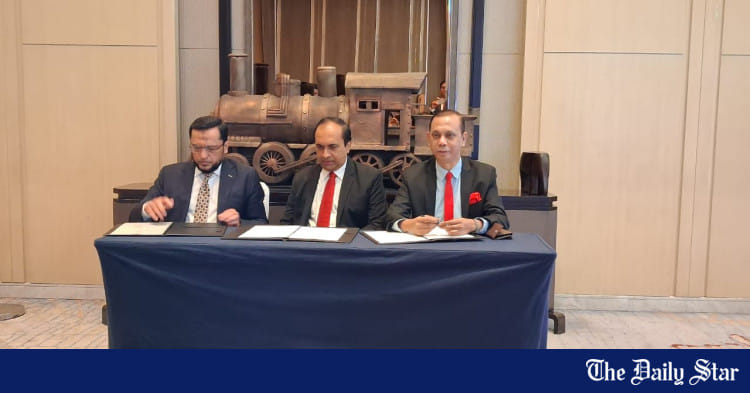Saif
Senior Member
- Joined
- Jan 24, 2024
- Messages
- 16,469
- Likes
- 8,138
- Nation

- Residence

- Axis Group


'Bangladesh Remittance Fair' to be held in NY next month
A two-day "Fourth Bangladesh Remittance Fair 2025" will be held in New York (NY) on April 19-20 to increase remittance flow from the USA to Bangladesh. The Bangladesh-USA Chamber of Commerce and Industry (BUCCI) and USA-Bangladesh Business Links will jointly organize the fair at Jackson Heights in
'Bangladesh Remittance Fair' to be held in NY next month
Published :
Mar 21, 2025 13:24
Updated :
Mar 21, 2025 13:24

A two-day "Fourth Bangladesh Remittance Fair 2025" will be held in New York (NY) on April 19-20 to increase remittance flow from the USA to Bangladesh.
The Bangladesh-USA Chamber of Commerce and Industry (BUCCI) and USA-Bangladesh Business Links will jointly organize the fair at Jackson Heights in New York, USA, BSS reported citing a press release on Friday.
The Bangladesh Association of Banks (BAB) and the Federation of Bangladesh Chambers of Commerce and Industry (FBCCI) are the organising partners of the fair.
Bangladesh Bank (BB) Governor Dr Ahsan H Mansur is scheduled to take part as the chief guest at the inauguration ceremony of the fair.
The event will bring together key stakeholders from both the public and private sectors, such as banks, mobile financial service providers, app developers, money exchange houses, and channel partners to showcase their products and services, share insights, explore opportunities, and enhance the security and efficiency of remittance channels.
The event will feature a rich programme, including demonstrations, presentations, discussions, Q&A sessions, and a Networking Dinner.
The networking sessions will see participation from the Department of Financial Services, New York State, and leading money exchange companies, providing a unique opportunity to engage directly with key industry representatives, explore potential partnerships, and stay abreast of the latest trends and innovations in the remittance sector.
Notably, a number of banks, money exchange houses, and remittance channel partners, such as Dhaka Bank PLC, Islami Bank Bangladesh PLC, and Uttara Bank PLC, had earlier participated in the fair.
Islami Bank Bangladesh PLC, National Bank Limited, and Bank Asia PLC were awarded the Top Remittance Bank Receiver Award 2024, the Top Remittance Channel Partner 2024 went to BA Express, Sunman Global Express, and Standard Express, while the Top Individual Remittance Award 2024 was given to 10 remitters at the closing and award ceremony of the "Third Bangladesh Remittance Fair-2024."
Published :
Mar 21, 2025 13:24
Updated :
Mar 21, 2025 13:24
A two-day "Fourth Bangladesh Remittance Fair 2025" will be held in New York (NY) on April 19-20 to increase remittance flow from the USA to Bangladesh.
The Bangladesh-USA Chamber of Commerce and Industry (BUCCI) and USA-Bangladesh Business Links will jointly organize the fair at Jackson Heights in New York, USA, BSS reported citing a press release on Friday.
The Bangladesh Association of Banks (BAB) and the Federation of Bangladesh Chambers of Commerce and Industry (FBCCI) are the organising partners of the fair.
Bangladesh Bank (BB) Governor Dr Ahsan H Mansur is scheduled to take part as the chief guest at the inauguration ceremony of the fair.
The event will bring together key stakeholders from both the public and private sectors, such as banks, mobile financial service providers, app developers, money exchange houses, and channel partners to showcase their products and services, share insights, explore opportunities, and enhance the security and efficiency of remittance channels.
The event will feature a rich programme, including demonstrations, presentations, discussions, Q&A sessions, and a Networking Dinner.
The networking sessions will see participation from the Department of Financial Services, New York State, and leading money exchange companies, providing a unique opportunity to engage directly with key industry representatives, explore potential partnerships, and stay abreast of the latest trends and innovations in the remittance sector.
Notably, a number of banks, money exchange houses, and remittance channel partners, such as Dhaka Bank PLC, Islami Bank Bangladesh PLC, and Uttara Bank PLC, had earlier participated in the fair.
Islami Bank Bangladesh PLC, National Bank Limited, and Bank Asia PLC were awarded the Top Remittance Bank Receiver Award 2024, the Top Remittance Channel Partner 2024 went to BA Express, Sunman Global Express, and Standard Express, while the Top Individual Remittance Award 2024 was given to 10 remitters at the closing and award ceremony of the "Third Bangladesh Remittance Fair-2024."



